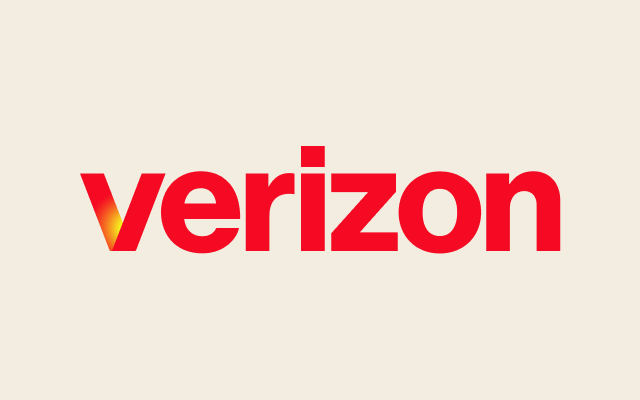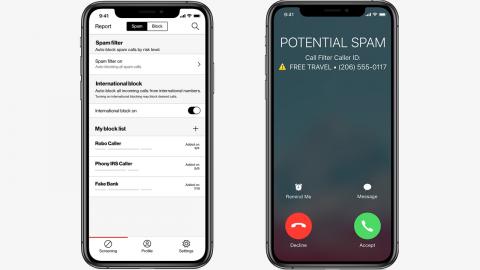How do I know if a call is spam?
Verizon has noticed an increase in COVID-19 related calls, using this moment of distress to target users with scams. Here are some tips to identify a spam caller.
- If the caller represents a generic sounding organization such as “HealthCentral 2020”, “Local Air Duct”, “The Government”, or not even bothering to identify their organization, then it is a scam.
- If there is pressure to act now, it is a scam.
- Recorded generic calls from marketing agencies or unknown numbers are likely spam calls.
- If the caller claims to know you but does not know your name, it is a scam.
- If the caller claims to represent a preexisting relationship and cannot cite an account number, or otherwise prove they are who they purport to be, it is a scam.
- A legitimate business calling one of their clients should already know everything they need about their client. Beyond perhaps verifying a birthdate, the customer should provide no information to the caller.
- If the caller wants money, cash cards, social security numbers, credit card or bank account numbers, shoe size when you are 14 years old, mother’s maiden name, etc, It’s a scam. Legitimate requests for payment can be done via mail.
- View our COVID-19 resource page for more information on what Verizon is doing to support customers.
What are some examples of COVID related scam calls?
Example 1: Hi, it's Mia. Important announcement, due to the recent COVID-19 coronavirus, the IRS is extending tax filing deadline and settling past-due tax debt. If you currently owe the IRS more than $10,000 in back owed taxes and need help press 1. If this is a call in error please press 7 to be removed. We can put a stop to wage garnishments, leans, and lower or eliminate the amount you owe.
Example 2: Hello this is an important message regarding your credit card payment. Due to the current epidemic of coronavirus, the cardmember services decided to eliminate your monthly payments and interest rates. Credit card members can now avail monthly payments elimination and lower interest rates. To speak to a representative please press 1.
What is a Wangiri scam and what is Verizon doing to stop them?
Wangiri is a Japanese word meaning "one (ring) and cut". It’s a telephone scam technique where your phone rings once and then stops, in hopes that you will call the number back. If you do call back, it goes to a high-cost international number, meaning you will be charged for that call and the scammer will make money.
Verizon is working to protect our customers from Wangiri scam calls but some calls do go through while Verizon's analytics are detecting the fraud campaign before the blocks can be put in place. Verizon will not charge you for calls back to Wangiri identified numbers.
To help protect yourself and others from a Wangiri scam:
- Turn on ‘International block’ in the Call Filter app if you don't normally receive international calls (this will block all international calls, even ones you may want to receive).
- Don't call back any unknown numbers or any numbers that don’t appear to be a 10 digit US number.
- If you do call back and hear a suspicious message, hang up immediately. The longer you stay on the phone, the more you are being charged.
- Report the phone number as a scammer through the Call Filter app or at VoiceSpamFeedback.com
What can I do to protect myself?
Employ existing blocking options: For wireless customers, Verizon’s Call Filter app can help you avoid unwanted calls. Screen your incoming calls, auto block unwanted calls based on risk level and report spam calls with the free Call Filter app. Upgrade to Call Filter plus to identify unknown callers by name and customize your spam list and block list. For the home, Fios Digital Voice customers automatically get Spam Alerts for free, which warn of potential fraud calls, and can also opt in for Nomorobo through My Verizon, a free tool used to stop robocalls from ringing on your home phone.
Report spam calls: The Call Filter app allows wireless customers to report a number as spam. This information will help us improve our spam detection service.
Educate yourself: Here are some consumer tips from the FCC.gov to stop unwanted robocalls:
- Do not respond to calls or texts from unknown numbers or any others that appear suspicious.
- Never share your personal or financial information via email, text messages, or over the phone.
- Be cautious if you’re being pressured to share any information or make a payment immediately.
- Scammers often spoof phone numbers to trick you into answering or responding. Remember that government agencies will never call you to ask for personal information or money.
- Do not click any links in a text message. If a friend sends you a text with a suspicious link that seems out of character, call them to make sure they weren't hacked.
- Always check on a charity (for example, by calling or looking at its actual website) before donating.
Register your phone numbers at DoNotCall.gov: Although this FTC registry won’t spare you from calls from scammers and thieves intent on breaking the law, it should prevent you from receiving “live” telemarketing calls, which are regulated by the federal government but are not illegal.
Robocall blocking tools
Here’s what Verizon is doing to block robocalls:
While there may not be a silver bullet that entirely ends these activities, we're fully committed to fighting the scourge of robocalls. Through the below efforts of Verizon and our partners, we are starting to curb the increase in robocalls.
Verizon wants to ensure that its customers receive good and wanted calls. Customers can let us know if we incorrectly identify a wanted call as spam. We also make sure that businesses can contact us with any concerns about incorrectly blocked calls. And because some robocalls are good, we educate legitimate businesses about “best practices” they can follow to reduce the risks that they get caught in blocking or labeling tools.
Verizon also uses STIR/SHAKEN technology to update our spam detection algorithm used by Call Filter, in real-time which may, in some cases, reduce the chances of incorrectly blocking or identifying a “good” call as “Potential Spam.”
Read more about Verizon's Voice Security options and STIR/SHAKEN.
Verizon supports legislation including the TRACED Act which gives the FCC and enforcement agencies greater authority to go after scammers. Verizon is also a founding member of the US Telecom Industry Traceback Group, an industry-led organization that traces back suspicious robocall traffic, stops many illegal robocalls, and helps enforcement agencies catch the bad guys. Additionally, Verizon supports the Truth in Caller ID Act which allows the government to charge robocallers with illegal spoofing once they prove the caller intended to defraud, cause harm, or illegally obtain something of value.
Verizon is committed to stopping robocalls so we offer free tools to our mobile and home customers.
- For mobile, Verizon’s Call Filter is a free app that screens and autoblocks incoming spam calls based on risk level and allows our customers to report spam.
- For the home, Fios Digital Voice customers automatically get Spam Alerts for free, which warn of potential fraud calls, and can also opt in for Nomorobo through My Verizon, a free tool used to stop robocalls from ringing on your home phone.
1 YouMail and the other companies extrapolate the data they collect from their user bases to estimate the entire volume of calls in the United States. YouMail, August 2019 Nationwide Robocall Data, https://robocallindex.com/history/time.



